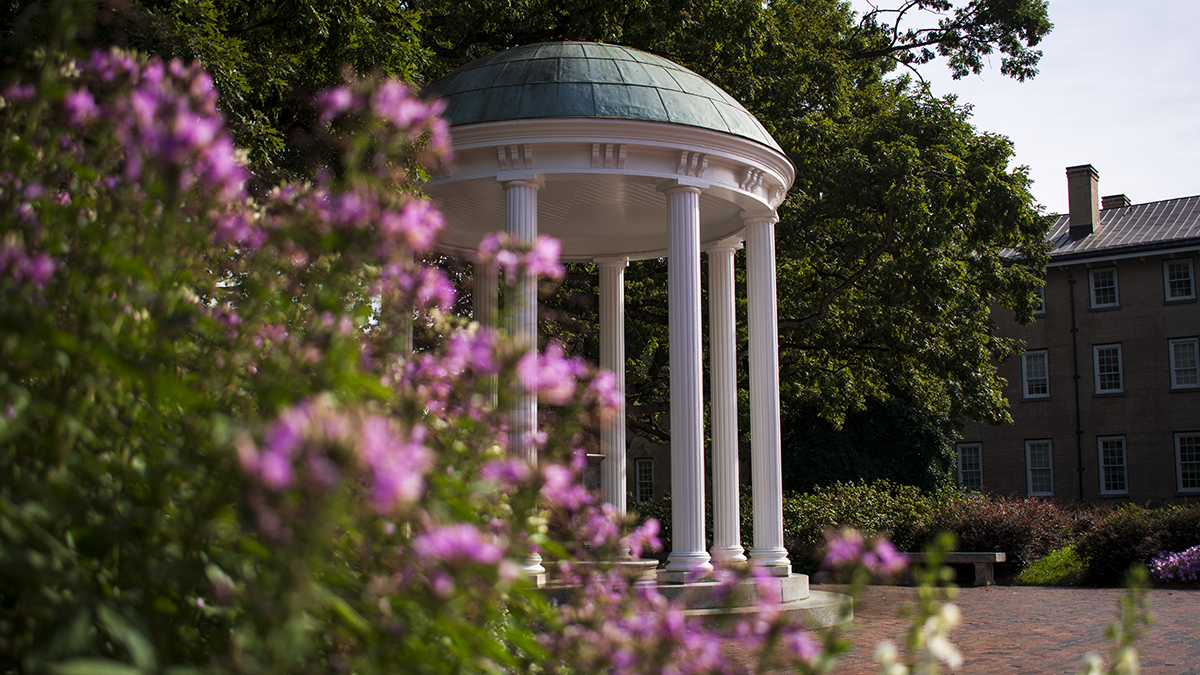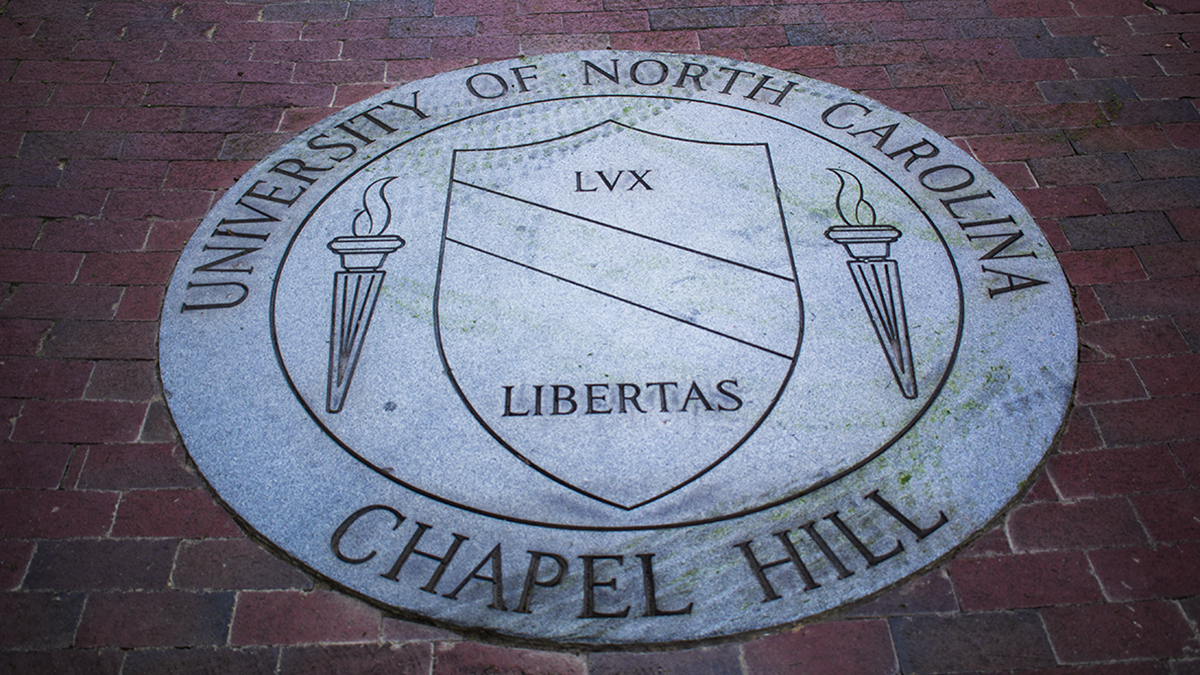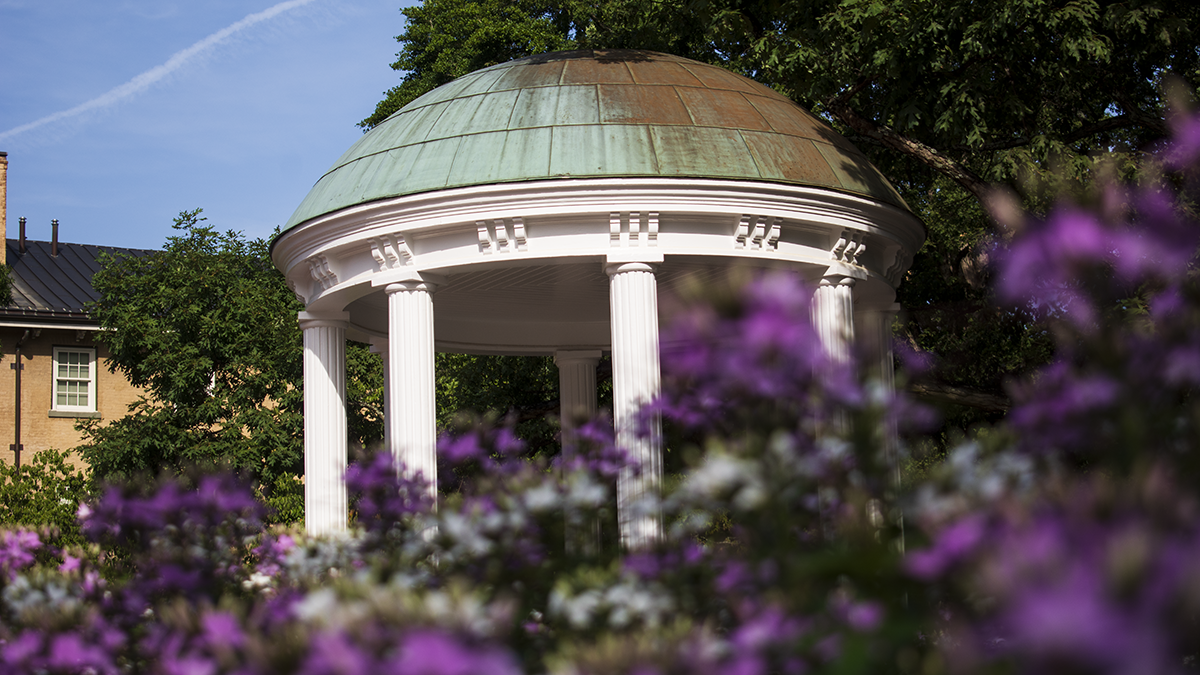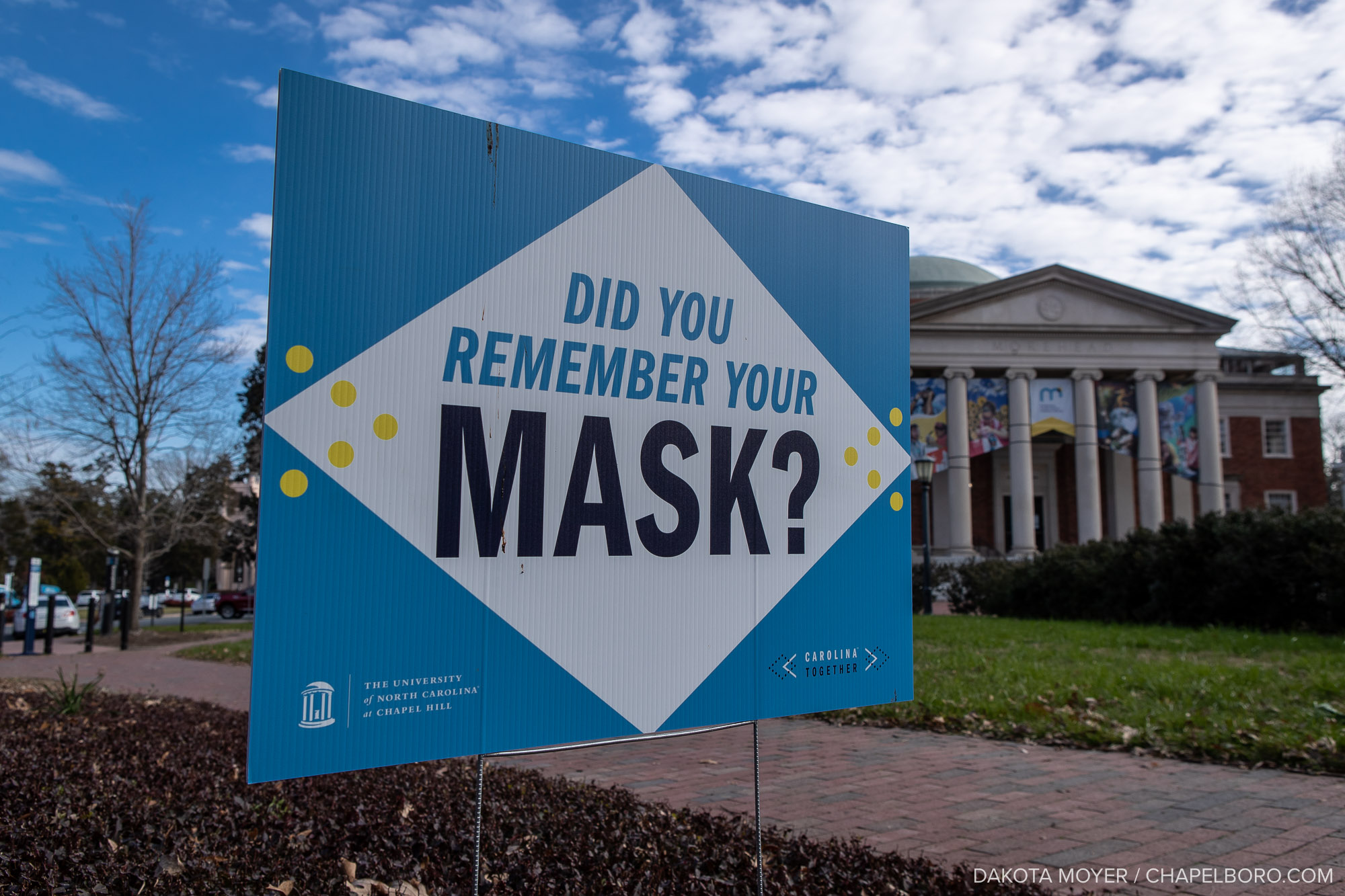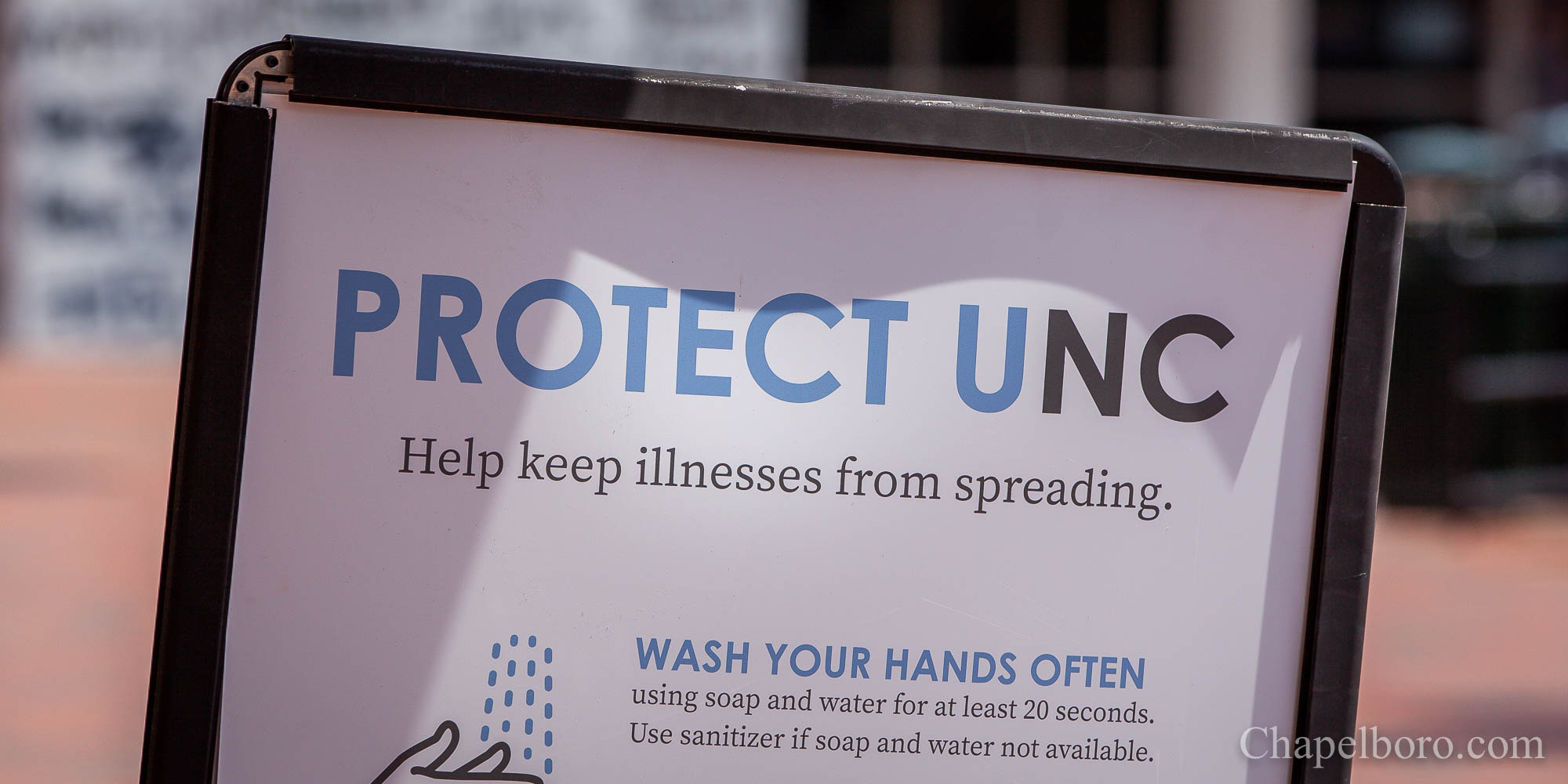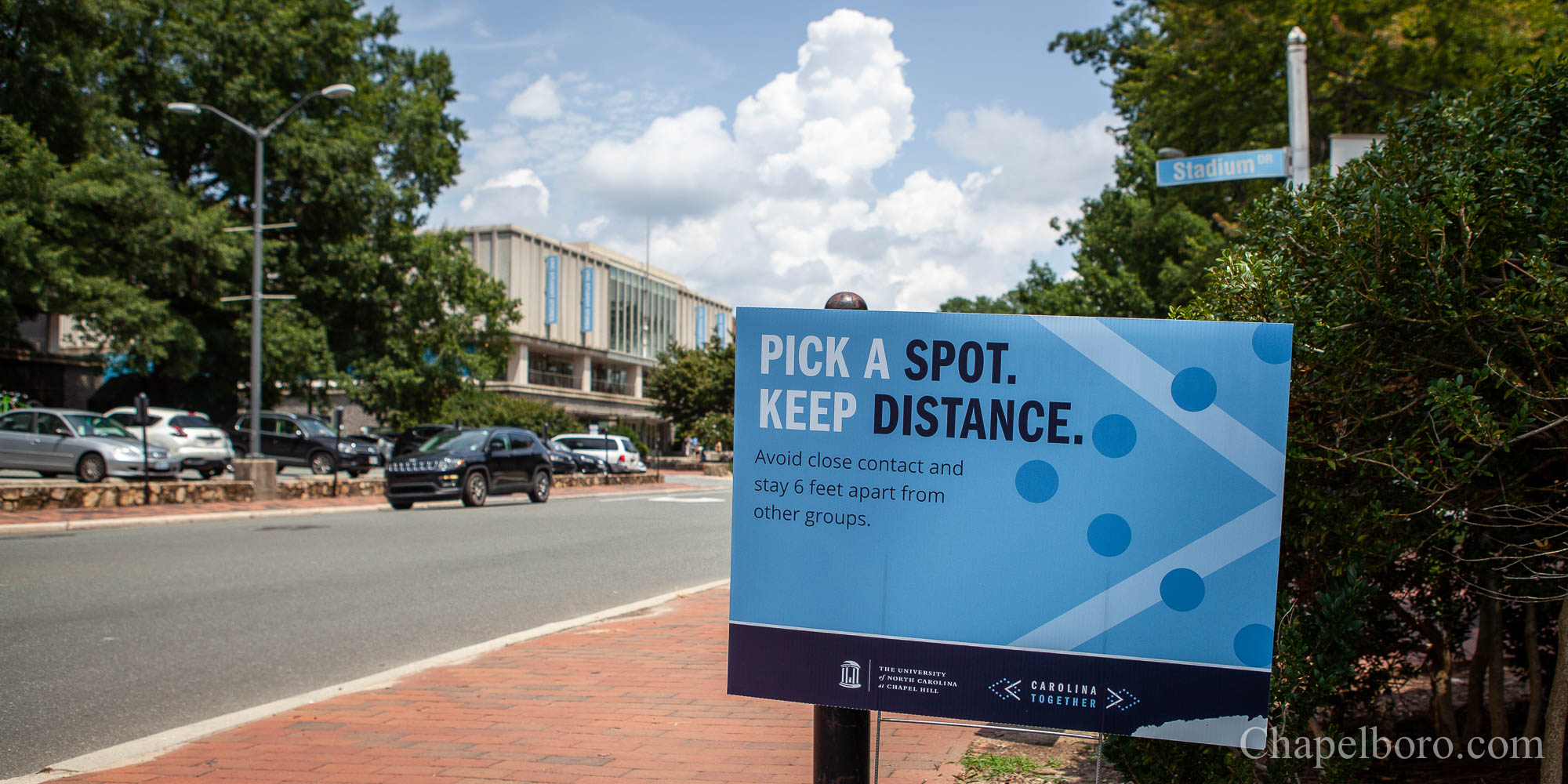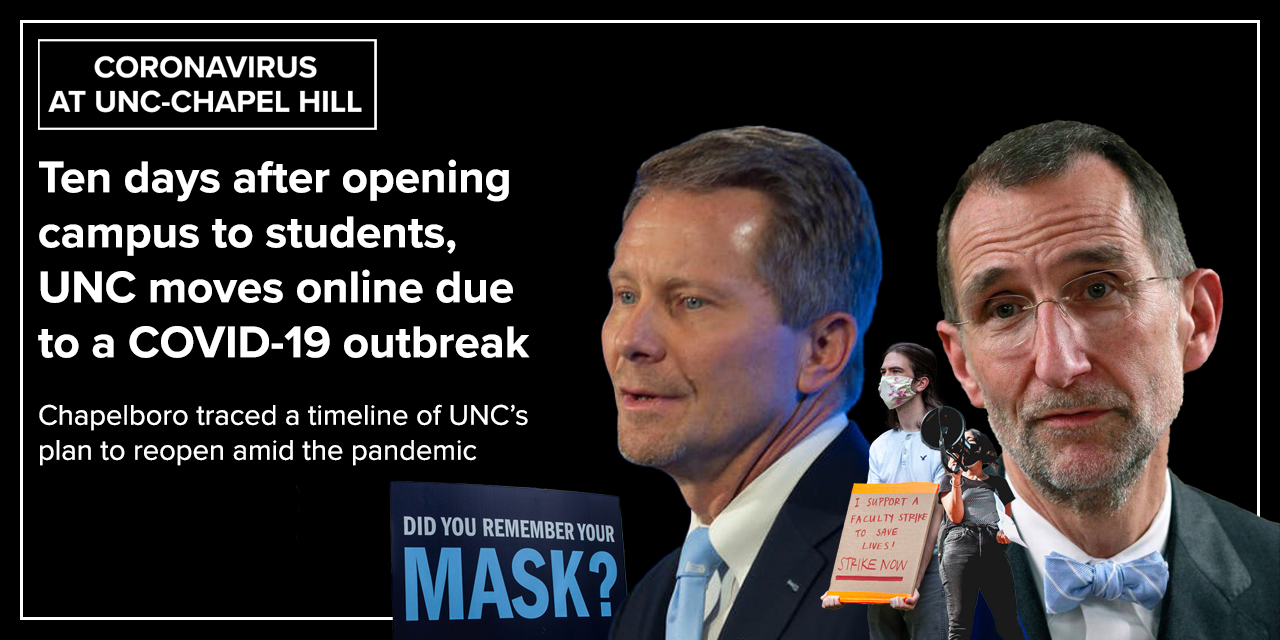
UNC is one of the first major universities to move back to remote instruction this fall after attempting to hold in-person instruction amid the COVID-19 pandemic.
What happened between the last time in-person instruction was held and when UNC students were asked to leave the Chapel Hill campus once again? Chapelboro’s extensive reporting laid out in this timeline revisits what university leadership said and how events unfolded.
April 28: UNC Chancellor Kevin Guskiewicz announces the university is planning on returning in the fall after holding classes remotely since March due to the outbreak of COVID-19 around North Carolina. “As we end this semester,” Guskiewicz writes on Twitter, “we are planning for the fall. We are hoping to return in mid-August but we are planning for many different scenarios.”
As we end this semester, we are planning for the fall. We are hoping to return in mid-August, but we are planning for many different scenarios. The safety of our community remains our top priority. We will keep you updated.
— Kevin Guskiewicz (@KevinGuskiewicz) April 28, 2020
At the time, there are 9,586 reported coronavirus cases in North Carolina along with 342 deaths associated with the virus. Orange County reports 209 cases and 14 deaths.
April 29: Then-interim UNC System president Bill Roper echoes Guskiewicz’s statement and says he believes students will be able to return for the fall semester.
“I expect to reopen our campuses for the Fall 2020 Semester and look forward to welcoming our faculty and students back to their classrooms and labs this fall,” Roper says.
May 21: UNC announces fall undergraduate classes will begin ten days earlier than originally planned, starting on Monday, August 10. The earlier start and the elimination of fall break will allow courses and final exams to be completed by November 24. Students will not be allowed to return to campus after Thanksgiving in an effort to stay ahead of a potential second wave of COVID-19 outbreaks.
University officials introduce public health guidelines as part of Carolina’s roadmap to the fall semester, and indicate they will have the ability to adapt if safety concerns arise.
“It will provide a way for us to reach our destination, which is why we’ve called it a roadmap,” says Guskiewicz. “We recognize we’re going to need to have some off-ramps that will position us to pivot this summer or fall should there be safety concerns, including the possibility of a resurgence of the virus. Those off-ramps will be important.”
May 29: UNC reveals its initial plans for returning student-athletes, coaches and staff to campus for the fall 2020 semester. Staggered groups will return to campus in order to test for COVID-19. The first group will arrive to campus on June 12.
June 1: Faculty and staff return to UNC in a phased approach. Research programs and laboratories at the university begin ramping up on-campus operations.
June 28: University leadership says it will not be testing every member of the community upon their return to campus. Citing advice from health experts and the Centers for Disease Control, the update says widespread, asymptomatic testing for COVID-19 may lead to “a false sense of security” at the university.
“We are aware that some members of our community have expressed questions and concerns about the plan we’ve presented,” write Chancellor Kevin Guskiewicz and Provost Blouin, “and we understand and appreciate those questions and concerns. We are working very hard with our community to make sure you have the very best information available and that we communicate with you often.”
June 30: Dr. Myron Cohen, a renowned infectious diseases expert at UNC, says wearing masks when in public, keeping physical distance between others and increased hand washing are the best way to directly combat COVID-19’s spread.
“It is not that easy to either inspire or require the risk-reduction behaviors appropriate to the new normal,” he says. “Our new normal right now is we’re being asked to do a thing inconsistent with the general behavior of our species.”
July 3: UNC urges its schools, departments and units to “not communicate about COVID-19 positive cases broadly to their populations.”
“The university will determine the release of non-identifying communications about clusters of positive results based on approved guidelines,” writes Blouin at the time.
The provost says this tactic will be consistent with privacy laws like the State Human Resources Act and the Family Educational Rights and Privacy Act, as well as additional privacy considerations the university implements.
July 8: UNC announces 37 members of the athletics department have tested positive for coronavirus since returning to campus on June 1. The university says a cluster, which is five or more positive COVID-19 cases that are related, has been reported by the Orange County Health Department.
“The safety and well-being of our campus and local community has been our top priority when building our plans for return,” says UNC in a release. “We have consulted our infectious disease experts as well as state and local officials during the process.”
July 11: The university clarifies that students who do not follow health guidelines could face disenrollment from courses and removal from on-campus housing, while others could face restriction from university facilities as a potential outcome for failed compliance. It is the clearest form of punishment detailed by UNC leadership about how health guidelines will be enforced.
The university also confirms that, as detailed in North Carolina’s reopening plan, face masks will be required from all students and employees while on campus.
July 23: UNC housekeeping workers hold a demonstration as they delivered a petition asking for more health and safety protocols to university housekeeping director Herb Richmond.
“It’s not just about the students, it’s about the workers,” says Penny Elliot, a UNC housekeeper crew leader. “I think that is what’s getting mixed around that the university is concerned with the students’ health but they’re not concerned with the workers’ health.”
According to the North Carolina Public Service Workers Union, some workers are being asked to work with as few as one or two masks per week despite multiple staff members having already tested positive with the coronavirus.
July 28: According to Carolina Housing Executive Director Allan Blattner, more than 2,100 students have notified UNC they will not be living on campus this academic year since May 1. The university says it is an effort to “de-densify” its on-campus residence halls ahead of the semester.
Guidelines released by the Center for Disease Control deem UNC’s plan for reopening residence halls at full capacity as the “highest risk” for coronavirus spread.
July 29: In a letter to university leadership, the Orange County Health Department recommends UNC consider begin the fall 2020 semester with virtual classes and restrict on-campus housing to at-risk students with housing needs.
Orange County Health Director Quintana Stewart says she “received a massive amount of emails from community members, UNC staff, faculty and students sharing their concern for fully reopening campus for the Fall Semester” amid the coronavirus pandemic.
August 3: UNC’s newly launched COVID-19 dashboard reveals 137 students and 36 staff members have tested positive for coronavirus since the university began collecting data in February.
“The University of North Carolina at Chapel Hill believes everyone in our campus community deserves equal access to information,” the website reads. “The UNC-Chapel Hill CV-19 Dashboard is available to provide data to make decisions for public health.”
August 5: Dozens of UNC students and staff members lie on the ground outside the South Building in a “die-in” protest and called for the university to operate online during the coronavirus pandemic.
Dozens of students and faculty members begin the “die-in” protest on #UNC’s campus. pic.twitter.com/UgxCr4kwz2
— WCHL & Chapelboro (@WCHLChapelboro) August 5, 2020
“I think the most disappointing thing to me is the absolute abdication of leadership responsibilities by Chancellor Guskiewicz,” says David Brannigan, a groundskeeper on UNC’s campus, at the event. “He is not leading and looking after his university and his people.”
August 7: A few days after a viral video is shared of a large group of women — none of whom were wearing masks — emerging from a house a few blocks from UNC’s campus, Town of Chapel Hill officials say they are prepared to enforce state health guidelines.
“We understand that people are returning to our community from different parts of the state and country where expectations and standards may be different,” says Chapel Hill Police Chief Chris Blue. “We will lead with education efforts to ensure everyone is aware of our high standards for the health and safety of everyone in our community. And, we will enforce those standards when necessary.”
August 10: UNC students officially return to class in Chapel Hill wearing face masks and abiding by social distancing guidelines.
Here’s what we saw on the first day of classes on campus.
A worker on campus said he estimated “99.99 percent” of students were wearing face masks. pic.twitter.com/tV4Z7JL4aB
— WCHL & Chapelboro (@WCHLChapelboro) August 10, 2020
There is no line of students taking a sip from the Old Well for good luck and no crowd in the library getting an early start on studying. Instead, volunteers pass out safety kits and signs plastered around campus remind students to wear face masks amid the COVID-19 pandemic.
August 11: A report from the Washington Post reveals UNC has revoked on-campus housing privileges for three students after they violated the community living and public health standards laid out for this year. When responding to Chapelboro, the university’s media relations team confirms Guskiewicz’ comments to the Post, but does not provide further information about the students due to privacy laws.
August 14: The first two COVID-19 clusters are identified on UNC’s campus in Granville Towers and the Ehringhaus Community. The university does not specify the total number of students who tested positive.
“The individuals in these clusters have been identified and are isolating and receiving medical monitoring,” reads an AlertCarolina message. “We have also notified the Orange County Health Department and are working with them to identify additional potential exposures.”
August 17: Data provided by the university shows 130 students tested positive for coronavirus in the first week of classes. Additionally, two more COVID-19 clusters are identified around campus: the third total being Hinton James Residence Hall and the fourth being the Sigma Nu fraternity house.
August 17: UNC announces it will move to a remote learning model indefinitely due to the ongoing spread of COVID-19 on campus. During a specially-called meeting of the Faculty Executive Committee, Guskiewicz cites the percent positive rate of students as being a “concern” to university leadership. Guskiewicz also says the university is considering pausing classes as students transition away from campus. Health experts in the meeting recommend students concerned about exposing their families to the virus can get tested at Campus Health, which will remain open.
August 18: UNC asks students living on campus to cancel their housing contracts in an effort to lower occupancy amid the transition to remote learning. Carolina Housing shared an email with students Tuesday night, saying those who do not qualify for exceptions must have their residence hall contracts canceled by Tuesday, August 25.
August 19: UNC reports two additional COVID-19 clusters around campus as undergraduate classes shift entirely online. An AlertCarolina message identifies the two clusters to be at Morrison Residence Hall and the Zeta Psi fraternity house.
August 21: The university announces classes on Monday, August 24 and Tuesday, August 25 will be paused as students continue transitioning to virtual learning and move off of campus for the remainder of the fall semester.
In addition, UNC reports more than 100 students have tested positive for COVID-19 in Granville Towers.
“To our students, we recognize that the past two weeks have been a roller coaster for many of you, especially those who came to Chapel Hill only to experience a growing number of COVID cases on our campus,” Guskiewicz writes in a message to the campus community. “Those escalating numbers and the ensuing change of plans created turmoil, and as a result, you are now making significant changes to your daily lives and the plans you had for your semester.”
August 22-23: AlertCarolina messages tell the campus community clusters are still appearing as some students finish moving out. Craige Residence Hall reports a cluster on Saturday, while Avery Residence Hall confirms a positive cluster among residents on Sunday. A cluster at the Alpha Delta Pi sorority house off UNC campus is also reported over the weekend.
August 24: Updates to the university’s COVID-19 dashboard reveal 505 students tested positive during the week of August 17 through August 23, with a positive test percentage of 32.2 percent. Occupancy of on-campus housing drops to 15 percent.
Granville Towers sees its cluster numbers increase to 144 total cases. Cluster totals for Carmichael (10), Craige (10) and Avery (6) are also revealed.
Featured image includes photos from Dustin Duong/The Daily Tar Heel and Ethan Hyman/News & Observer
Chapelboro.com does not charge subscription fees. You can support local journalism and our mission to serve the community. Contribute today – every single dollar matters.

